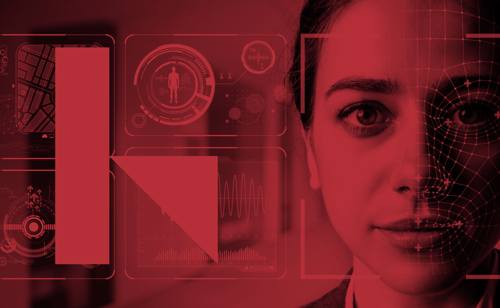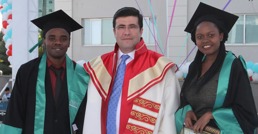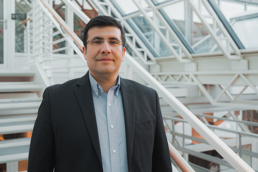Why conspiracies catch fire - and how to stop them
SCIENCE NEWS FROM KRISTIANIA: Conspiracy theories
This text was first published on sciencenorway.no on the 14th of May 2025 with the title "How conspiracies spread - and how we stop them".
Key takeaways:
- Health conspiracies theories are rising, fueled by mistrust, inequeality, and sensational content on social media, notes professor Adnan Kisa.
- These beliefs harm public health by lowering vaccine uptake, delaying treatment, and spreading stigma - especially in vulnerable communities.
- Professor Kisa states the solution lies in building trust, boosting media literacy, and holding platforms accountable.
(The summary was created by AI and reviewed by the editors).
In 2023, nearly 1 in 4 people believed that Covid-19 was a bioweapon – despite overwhelming scientific evidence to the contrary.
This is not just a fringe belief – it reflects a growing crisis of mistrust that’s undermining public health around the world.
As misinformation becomes more sophisticated and harder to detect, health professionals must understand why people believe it in the first place
Our recent study reveals how these narratives – from Covid-19 misinformation to HIV/AIDS denial – spread, who they affect, and what we can do to stop them.
Is someone secretly harming your health?
Health conspiracy theories claim hidden agendas behind public health policies, medical treatments, or scientific research.
They suggest that powerful groups – like governments or pharmaceutical companies – are secretly harming the public for profit or control.
Popular examples include claims that vaccines cause infertility, that HIV was engineered as a weapon, or that cancer cures are being hidden to protect pharmaceutical profits.
These theories have real-world consequences.
They reduce trust in health systems, increase vaccine hesitancy, and worsen health disparities – especially for already marginalised groups.
Who believes them – and why?
These beliefs are particularly widespread among people with low trust in government, lower education levels, and limited access to credible health information.
A U.S. study found that nearly one-third of older black adults believed in HIV-related conspiracy theories, reducing their willingness to get tested or seek care.
In South Africa, beliefs among adolescents were linked to scepticism about HIV prevention.
In Spain, people with far-right political views were less likely to get vaccinated.
Globally, people who believed in Covid-19 misinformation were less likely to follow public health advice like masking or social distancing.
In extreme-right political circles, health misinformation is often framed in pseudo-scientific or racist narratives, which further erode public trust and threaten social cohesion.
A combination of psychological, social, and technological factors drives these beliefs.
Misinformation is more visible than reliable information
The algorithms on social media platforms prioritise sensational content, making conspiracy theories more visible than reliable health information. During the Zika outbreak, false stories were shared three times more frequently than factual ones.
Belief in conspiracy theories affects more than just individuals – it impacts entire communities
Some influencers promote conspiracy-based health content while selling alternative products, using personal stories and emotional language to build trust with their followers.

Read more:
It puts all of us at risk
Belief in conspiracy theories affects more than just individuals – it impacts entire communities. People may choose not to immunise their children, putting others at risk. Others may delay cancer treatment because they believe natural remedies are being suppressed.
The mental health effects are also concerning. Healthcare workers who believed Covid-19 was man-made reported higher anxiety, depression, and lower job satisfaction.
False narratives that link disease to specific ethnic or political groups can deepen societal divides, lead to stigma, racism, or even violence.
What can we do?
Several strategies have shown promise:
1. Inoculation messaging: Exposing people to weak versions of conspiracy theories along with factual refutations, helps them build resistance to future misinformation. In one study, this approach improved vaccine attitudes, especially in low-trust settings.
2. Media literacy education: Teaching people how to spot false claims and check sources can reduce the spread of misinformation. But caution is needed – some interventions make people overly sceptical.
3. Trust-building: Community engagement is key. Involving trusted community leaders, using culturally relevant messages, and being transparent about health decisions can help rebuild trust, particularly in communities with a history of medical mistreatment or marginalisation.
4. Platform accountability: Social media companies must take responsibility by adjusting algorithms, labelling false content, and cracking down on financial incentives for conspiracy promoters.
5. Long-term research: We need more studies comparing which strategies work best in different populations; testing over the long term and across diverse sociopolitical contexts.
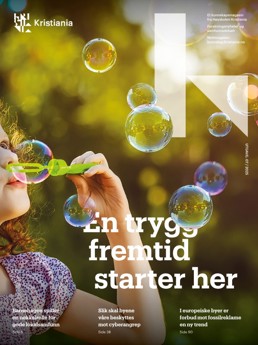
Les Kunnskap Kristianias temautgave:
We must address the root causes
As misinformation becomes more sophisticated and harder to detect, public health professionals must not just 'debunk' false claims but understand the social and emotional reasons people believe them in the first place.
We must address the root causes: low trust, inequality, and lack of access to reliable information. That means combining digital tools with community-based outreach and evidence-based education. It also means holding platforms accountable while respecting free expression.
In a world where misinformation spreads with a click, building resilience to conspiracy theories is not just an option – it’s a public health imperative.
Reference:
Kisa, A. & Kisa, S. Health conspiracy theories: a scoping review of drivers, impacts, and countermeasures, International Journal for Equity in Health, vol. 24, 2025.
Text: Adnan Kisa, professor at the School of Health Sciences, Kristiania University of Applied Sciences.
This text was first published on sciencenorway.no on the 14th of May 2025 with the title "How conspiracies spread - and how we stop them".
We love hearing from you!
Send your comments and questions regarding this article by e-mail to kunnskap@kristiania.no.
Siste nytt fra Kunnskap Kristiania
 Kunnskap KristianiaLes mer
Kunnskap KristianiaLes merVerdien av stillhet
Vi lever i en tid der hvert øyeblikk kan fylles – av lyd, informasjon, samtaler, varsler og tanker. Kunnskap KristianiaLes mer
Kunnskap KristianiaLes merFrykten for å gå glipp av noe skaper uro – og mer scrolling
Problemet med sosiale medier er ikke at de fører til sosial isolasjon. Men FOMO-syndromet skaper stress.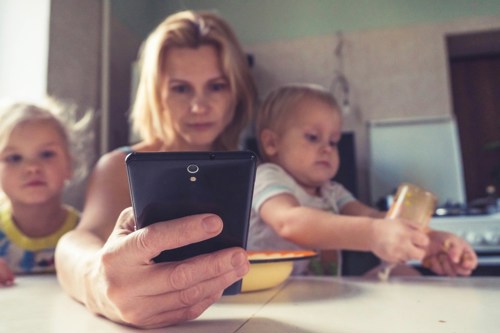 Kunnskap KristianiaLes mer
Kunnskap KristianiaLes merNår Tinder møter hverdagslogistikken
Du syntes det var vanskelig å få datingapper til å fungere? Prøv å få det til med hverdagslogistikken til en aleneforelder. Kunnskap KristianiaLes mer
Kunnskap KristianiaLes merHva om du kunne «gå opp i level» underveis i prøven?
I dataspill får du en ny utfordring i det øyeblikket du er klar for den.
